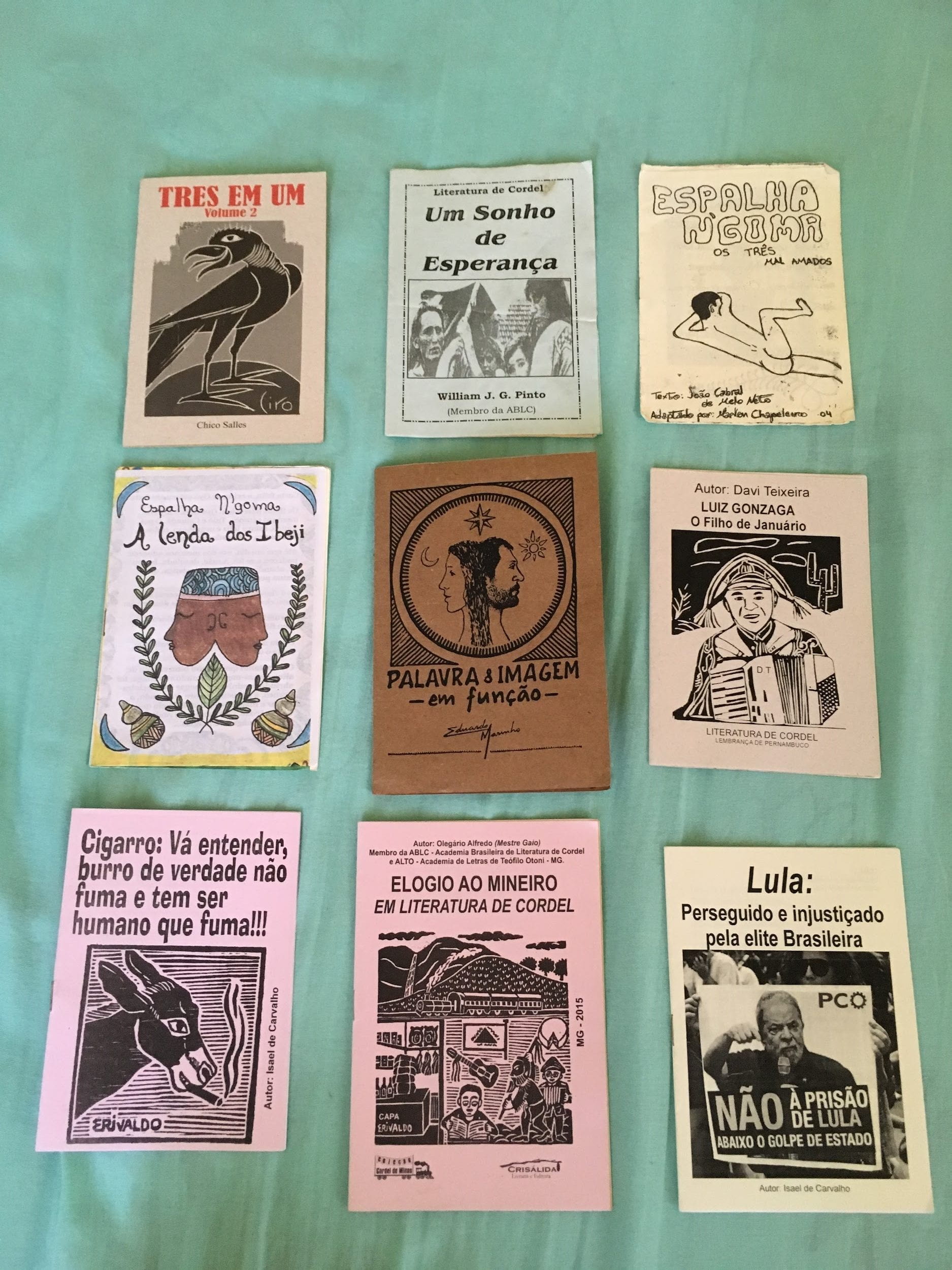Identity Crises
My brown is not Brazilian brown. In fact, my brown is not even brown here. I am considered white with a foreign tan, and every day that tan is fading as fall slips into winter. I realized I was white for the first time while eating dinner with a local friend, when she asked me if I identified as ‘Latina’. I gave her a long-winded response about how I used to identify as ‘Latina’, then came to discover ‘Latinx’, then abandoned all labels with ‘Latin’ in them, and now a-days identify most strongly with ‘Chicana’ or “Fronteriza”. She informed me that in Brazil none of this matters–I am white. I remember feeling deeply misunderstood upon hearing that piece of information. I had spent too long thinking about my brown, about what it meant, about its exact shade, for someone to tell me that I was white.
Race operates differently here. The official census of the country includes the following five categories: branco (white), pardo (brown), preto (black), amarelo (yellow) (Asians), and indigena (native). However, because the country is so racially mixed it seems to me that the understanding of race is far more dichotomous here: you’re either white or black, and everything in between is somewhat ignored. This construction is seemingly simpler, but carries with it a slew of complexities and debates. For instance, the country’s federal university quota system, and state-by-state racial quotas, are highly controversial in a country that is so racially mixed.
I have also observed that part of this strictly dichotomous understanding of race is the negation of a Latin American identity within the Brazilian identity. Almost every Brazilian I have talked to about the subject, does not see themselves as fitting within part of Latin American identity. Given the enormous geographical size of the country, and the language difference, this sense of separateness makes some sense. But when I see a white Brazilian, I still consider them closer to my idea of a ‘Latin American’ than I do to my idea of an ‘Anglo-Saxon’. This is perhaps the first time in my life that I am beginning to realize that I had a preconceived idea of a ‘Latin American’, or an ‘Anglo-Saxon’, and that these ideas are full of personal biases and are not necessarily concrete realities.
Since Brazilians generally negate a Latin American identity, Latinos are considered foreign. When strangers (usually Uber drivers) hear me speak enough Portuguese to recognize I have an accent, they eventually ask where I am from. I have gotten into the habit of answering “chuta”, “guess”. They usually reply “Argentina? Peruana? Colombiana?” (I’ve gotten Syrian one or two times as well, which I always find amusing). The way in which the guesses almost always involve a string of Spanish-speaking countries, makes me think that Brazilians tend to lump these countries together and understand them as a ‘Latin America’ apart from Brazil. When I tell them I’m from the U.S., they stare at my non-Brazilian brown as if to say “no, but where are you really from?”. I then tell them my parents are from Mexico, and their confused stare turns into satisfaction. I confirm their idea of me, and we can move on with the conversation accordingly.
Juggling being white, and also a being a foreign Latina has been confusing to say the least, but it has also granted me an opportunity to explore other parts of my identity and consider new ways of understanding other people. Instead of asking where someone is from, which is probably the most common question I remember asking and being asked at Amherst, I now like to ask what someone likes to do in their free time. The fact that I like playing guitar, hiking, and collecting zines and literatura cordel seems much more informative than telling someone that I am Mexican-American.
Juggling the foreignness part gets easier and easier as I become more fluent in Portuguese. A couple weeks ago I was talking to someone in English on my walk home and as we were about to cross the street and I unthinkingly said, “Let’s go there”. I stopped in the middle of the street with joy (luckily for me there were no cars) after realizing that I had just thought in Portuguese! I had tried to directly translate vamos lá, which would have made sense in this scenario in Portuguese, into English. A better translation would have been c’mon or chop chop in English. Last week, I had a sleepover with a friend and they informed me that I was sleep talking in Portuguese! These silly new milestones in language acquisition make me incredibly excited, and are far more rewarding than any grade I have ever gotten on a Portuguese exam. Learning the language reminds me that minimizing the foreign part of my identity is possible with enough time and effort.
However, I still struggle with juggling the whiteness part of my perceived identity here. I realized that part of my decision to study abroad in Brazil was an attempt to escape an idea of “whiteness” I had. Leaving Massachusetts, leaving Amherst College, and studying abroad in a “Latin American” country was an attempt to leave “whiteness” and find something different. Little did I know that I would arrive in a country that did not conceive of itself as Latin America, and that I would discover that I myself was the whiteness I was trying to escape.
‘Chicana’ feels like a warm cobija I can comfortably wrap myself in when these types of identity crises begin to encroach. But in the heat of Rio (even in the winter), wrapping myself up in a blanket doesn’t make a whole lot of sense, so I will continue searching for and affirming parts of my identity that make me an individual.



